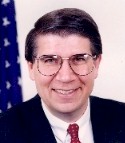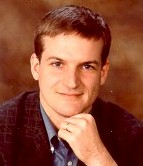
Istook (R-OK)
Rep. Istook Blames Clinton-Gore Administration for Stopping
Porn Filtering Legislation
(March 16, 2000) Rep. Ernest Istook stated on March 15 that the only reason that his appropriations amendment requiring that no taxpayer dollars be spent to provide access to Internet pornography did not get through the entire appropriations process was because the Clinton-Gore administration opposed it. He spoke at a Family Research Council event on the use of Internet filtering software in public libraries.
| See, Istook Speech, 3/15/00. |
Rep. Ernest Istook (R-OK) gave an address at an event at the National Press Club hosted by the Family Research Council. Rep. Istook, who is a member of the House Appropriations Committee, has been trying to use an appropriations rider to enact into law a requirement that any Internet access subsidized by taxpayers include porn filtering software.
"In the last two years, two years straight, on the appropriations measure that provides funding for education, among other things, in a bipartisan way, that unanimously, the Appropriations Committee adopted amendment that I wrote to require a library that is using public funds to provide Internet access to filter out pornography or obscenity from children who are accessing the Internet," said Rep. Istook.
 |
|
| Rep. Ernest Istook (R-OK) |
However, he added, "the only reason the amendment did not get through the entire appropriations process was because the Clinton-Gore administration opposed it, and required that we take it out of the bill before it got to the White House."
Rep. Istook was Chairman of the metropolitan library system in the Oklahoma City area before being elected to Congress.
The purpose of the event was to advocate protecting children from pornography in public libraries and schools.
"There's a sea of evidence that Internet pornography and related sex crimes are a serious problem in America's libraries," said Janet Parshall, of the Family Research Council (FRC).
To support this contention the FRC released a lengthy report titled "Dangerous Access, 2000 Edition: Uncovering Internet Pornography in America's Libraries." The report was written by David Burt, a librarian from Lake Oswego, Oregon, who also maintains the Filtering Facts web site.
| See, "Dangerous Access, 2000 Edition: Uncovering Internet Pornography in America's Libraries," by David Burt. [Link to 71 page PDF document in the FRC web site.] |
The report was largely based on data collected from responses to Freedom of Information Act requests sent to public libraries around the country. Over 14,000 requests were mailed to libraries. The report states that "Nearly all of the nation's public library systems were contacted with Freedom of Information Act requests, but 71% of the public library systems ignored the requests. Both the American Library Association and a number of State Libraries sent messages to public libraries suggesting ways that libraries could avoid compliance with the requests."
However, based on the results received, along with information from several news stories, the report states that 2,062 incidents involving pornography in public libraries have been identified. The report includes data on several categorizes of incidents, including "Adult Accessing Pornography" (962), "Child Accessing Pornography" (472), "Adult Exposing Children to Pornography" (106), "Child Porn Being Accessed" (41), and "Attempted Molestation" (5).
 |
|
| David Burt |
David Burt spoke at the event. He said that his report only uncovers the "tip of the iceberg." First, 71% of public libraries did not respond to his request. Second, he said that "most incidents go unreported. Recently 47 librarians and library employees at the Minneapolis public library reported being repeatedly subjected to Internet pornography, some 'on a daily basis.' Yet the Minneapolis Public Library only provided three documented incidents."
Filtering opponents criticized the report. For example, Charles Levendosky, the webmaster of the First Amendment Cyber-Tribune, stated that the report "is seriously flawed. It cannot be used as any kind of indicator for assessing the number of incidents of viewing so-called pornography at public libraries across the nation."
Lavendosky stated that David Burt's report "never defines pornography in the entire report, nor does he tell the reader how the libraries that reported incidents of viewing pornography defined it. ... How then can Burt accurately determine when pornography was viewed by library patrons?"
Heidi Borton, a librarian from Seattle also spoke. She stated that she recently resigned from her job at the King County Library System because "I could not in good conscience support an 'equal and open access' Internet policy."She related some of her experiences. "Picture this. You are a librarian who sees a ten year old boy not two feet from a man viewing a full screen of sexual intercourse. Or you see a young woman, who happens to walk by a porn-viewing Internet user, become visibly upset, throw down her books and run from the Library. When you go to retrieve the books you find they are on recovery from rape. Or you face the distasteful task of 'unlocking' a screen locked in an orgy website."
Jan LaRue, the FRC's Director of Legal Studies, also spoke, as did a 13 year old girl from Santa Clara, California.
| See, Tech Law Journal Summary of Filtering Bills in the 106th Congress. |
There are presently several different bills in Congress that would require filtering software on Internet access computers used by children in schools and libraries. A bill offered by Rep. Bob Franks (R-NJ) has been attached to the House version of the juvenile justice bill. This bill is currently mired in controversy, because of its gun control content.
Sen. John McCain (R-AZ) has offered a bill which has been approved by the Senate Commerce Committee, which he chairs, but not by the full Senate. Also, Rep. Istook annually attempts to attach a rider to an appropriations bill.
Finally, the Federal Communications Commission, which created and runs the e-rate program, could write a requirement into its regulations which requires schools and libraries receiving e-rate subsidies to install filtering software on computers used by children. Crystal Roberts, an attorney with the Family Research Council, told Tech Law Journal that the FRC has made this request, but that the FCC has declined.
Roberts also predicts that a filtering bill will be passed by the Congress this year.